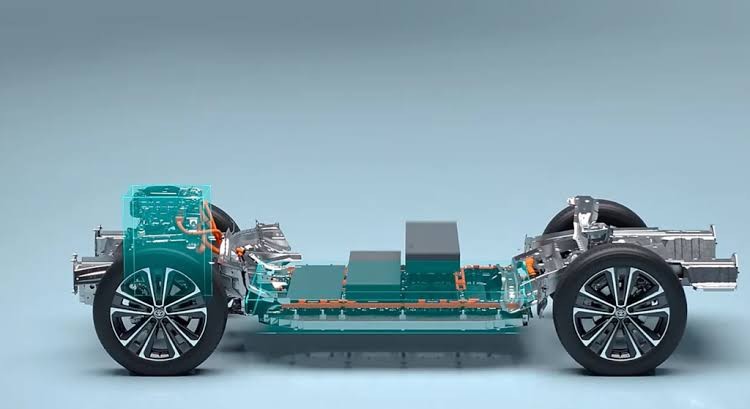The company's latest announcement claims that these batteries will provide an impressive range of 745 miles and a rapid 10-minute charging time.
Toyota, the world's largest automaker, has made a significant breakthrough in solid-state battery technology. Let's explore the details of this innovation and its potential impact on the electric vehicle industry.
Toyota's Solid-State Battery Technology
Toyota has been dedicated to developing solid-state battery technology for years, and their efforts have paid off. Solid-state batteries utilize a stable solid electrolyte, replacing the liquid electrolytes found in traditional lithium-ion batteries. This advancement ensures enhanced safety and stability, along with the potential for longer ranges and faster charging times.
The company plans to commence mass production of solid-state batteries by 2025 and incorporate them into their electric vehicles by 2027. This breakthrough will contribute to making electric vehicles more practical, affordable, and environmentally friendly.
Key Details about Toyota's Solid-State Battery Technology
- Innovative Electrolyte: Toyota employs sulfide-based electrolytes, which offer superior stability compared to liquid electrolytes found in conventional lithium-ion batteries. This enables faster charging and longer ranges.
- Compact and Lightweight: Solid-state batteries are smaller and lighter than lithium-ion batteries. This characteristic boosts the performance and efficiency of electric vehicles.
- Successful Prototypes: Toyota has already developed solid-state battery prototypes that meet performance standards. The company is currently focused on scaling up production and enhancing affordability.
Advantages of Solid-State Batteries
Solid-state batteries hold several advantages over traditional lithium-ion batteries:
- Extended Range: The improved efficiency of solid-state batteries allows for a longer driving range, surpassing that of lithium-ion batteries.
- Rapid Charging: Solid-state batteries boast higher conductivity, enabling faster electron transfer and reducing charging times.
- Enhanced Stability: Compared to lithium-ion batteries, solid-state batteries offer improved stability, reducing the risk of fire or explosion.
- Lighter Weight: Solid-state batteries do not require a liquid electrolyte, resulting in a lighter overall battery pack for electric vehicles.
Remaining Challenges and Promising Future
While solid-state batteries show immense promise, there are challenges that require further attention:
- Cost Considerations: Solid-state batteries are currently more expensive to produce than traditional lithium-ion batteries. Continued research and development efforts aim to enhance manufacturing efficiency and lower costs.
- Performance Optimization: Solid-state batteries have yet to match the energy density and cycle life of lithium-ion batteries. Further advancements are needed to close this gap.
- Safety Assurance: Though more stable than lithium-ion batteries, solid-state batteries must undergo rigorous testing to ensure utmost safety standards.
Despite these challenges, the development of solid-state batteries represents a promising area of research. Overcoming these obstacles could revolutionize the electric vehicle industry, enhancing affordability, practicality, and sustainability.
Conclusion
Toyota's breakthrough in solid-state battery technology brings us one step closer to a future of advanced electric vehicles. The impressive range and rapid charging capabilities offered by these batteries have the potential to transform the automotive industry. With ongoing efforts to address cost, performance, and safety considerations, solid-state batteries may soon power a new generation of efficient and sustainable electric vehicles.

Comments (0)
Please login to join the discussion
Be the first to comment on this article!
Share your thoughts and start the discussion